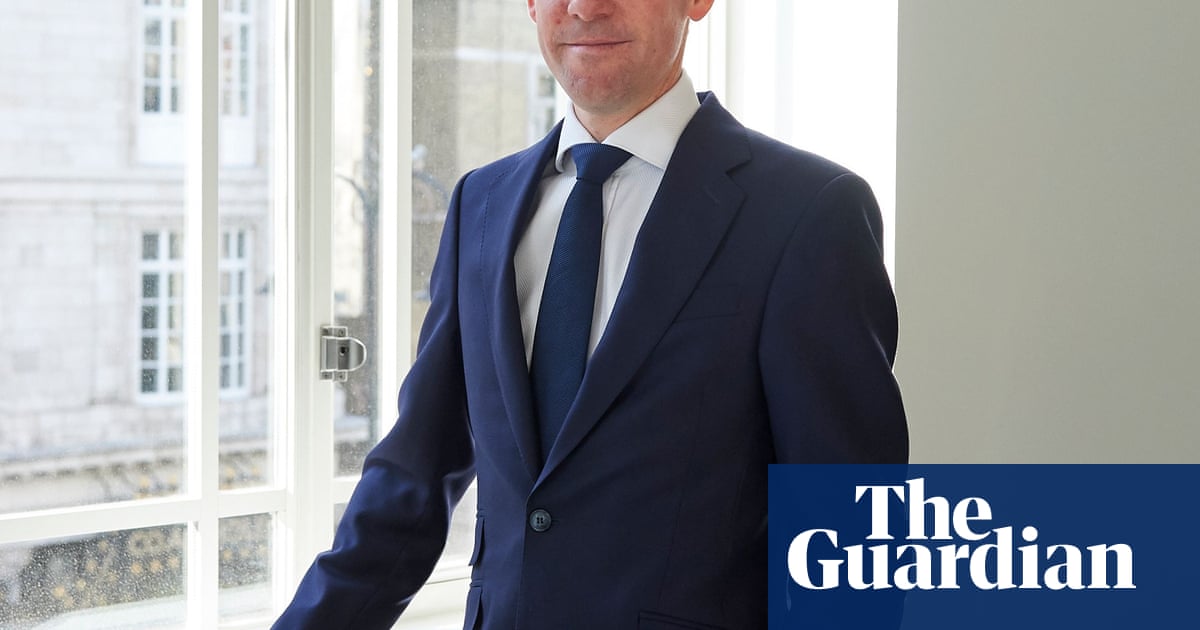The government is seeking to disqualify the Australian financier LexGreensillfrom managing a UK company for 12 years, the high court has heard.
Greensill, a former Australian sugar farmer, is the founder and chief executive officer of Greensill Group – which specialised in supply-chain finance – the UK wing of whichentered into administrationin March 2021.
The secretary of state for business and trade (SSBT) has issued disqualification legal proceedings against Greensill after the Insolvency Service investigated various companies within the group.
Lawyers for SSBT said in written submissions for a high court hearing on Tuesday that Greensill made a series of misrepresentations and non-disclosures to insurers and investors, as well as to the boards of his companies, which led to the loss of billions of dollars.
They said Greensill – whose company was the main financial backer of Sanjeev Gupta’s steel empire – is therefore unfit to manage a company in the UK, “warranting a period of disqualification in the top bracket”.
Greensill became the subject of one of the UK’s biggest lobbying scandals after it emerged that the former prime minister David Cameronhad sent62 messages during the Covid pandemic in 2020 to lobby ministers and officials asking for the then-struggling Greensill to be allowed access to the government’s coronavirus loan support scheme.
Mr Justice Trower rejected an application from Greensill’s lawyers to temporarily pause the second of three issues, which relates to financing from Greensill Capital UK (GCUK) to the Catfoss Group where it is alleged Greensill made misrepresentations and non-disclosures to insurers.
Hilary Stonefrost, for Greensill, said in written submissions that “some substantial factual issues” will also feature in legal action in Australia, where a trial is due to begin next summer, days after the trial in London is expected to finish.
She said that if the application is not granted, there is a risk of inconsistent judicial decisions and a risk of prejudice to unsecured creditors of GCUK while court time and costs will be wasted.
“The trial in the disqualification proceedings is likely to end only days before the trial in the Australian proceedings starts,” she noted.
“There is a serious risk of inconsistent decisions being made only a few months apart, in particular because the evidence in relation to the overlapping conduct and allegations of dishonesty in issue two is likely to be materially different in the two proceedings.
“Inconsistent decisions could seriously damage public confidence in disqualification proceedings.”
David Mohyuddin KC, for SSBT, said the Australian legal action may only conclude in 2028 and that a successful delay application in the English court, known as a stay, could therefore push SSBT’s case to finish in 2029 at the earliest.
He also said that granting the application could favour Greensill’s resulting position from the Australian case as he would avoid having to make damaging admissions in England.
In written submissions, he said: “The stay application is a transparent attempt on the part of Mr Greensill to exclude from the court’s purview at the trial in June 2026 a damning allegation against him, and to delay, with the hope that he will eventually avoid, having to face it.
“That is not a permissible basis upon which to seek to invoke the court’s case management powers and it should be resisted.”
He continued: “By any measure, the relief sought by Mr Greensill is extraordinary.”
Trower rejected the application, citing the likelihood of a years-long delay and the added complexity and costs that would result.
He said there was a “very real prospect” of the issue being delayed until 2029 while there would be “real problems in carving up the evidence in issue two from issues one and three”.
